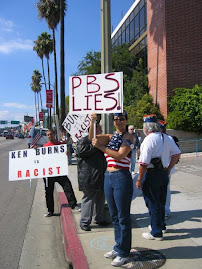
Last Thursday California State University Channel Islands’ Chicana/o Studies program kicked off its fall 2009 Crossing Borders/Linking Communities lectures series. UC Davis Professor Lorena Oropeza, author of the acclaimed ¡Raza Si! ¡Guerra No!: Chicano Protest and Patriotism during the Vietnam War Era, spoke to the significance of Reies Lopez Tijerina to the Chicano Movement of late 1960s and 70s. In this regard, Professor Oropeza argued that Tijerina’s New Mexico land grant struggle positioned Chicanas and Chicanos within the historical narrative of the United States (up until then omitted) as well as complicated the nation’s notion of a black/white racial paradigm. A model, by the way, in which many Mexican Americans favored in identifying themselves as white; after all, that is where the rights and privileges of citizenship existed. Among other points made, Professor Oropeza posited an adroit definition of cultural nationalism in context to the era’s movements of civil rights and opposition to the Vietnam war. This being that cultural nationalism sought to instill a love of self in historically stigmatized populations such as people of African, Asian, and Mexican origins in the nation in order to promote unity that would ultimately translate into political power. This explanation is important when considering that academics have a tendency to bandy about concepts (such as cultural nationalism, post-structuralism, post-modernism, and other isms) without clearly explaining their own understanding of them.
The next presentation of this 3 part Chicana/o Studies lecture series will feature UC, Irvine History professor Dr. Anna Rosas on Wednesday, October 13th starting at 3pm. Professor Rosas will speak on the Bracero (Guest Worker) Program and its influences on families on both sides of the Mexico-US border. And in the following month, on November 18th, Gustavo Arellano, OC Weekly syndicated columnist and author of ¡Ask a Mexican! and Orange County: A Personal Narrative,will speak starting at 6pm. See the accompanying poster for details.
fpb
The next presentation of this 3 part Chicana/o Studies lecture series will feature UC, Irvine History professor Dr. Anna Rosas on Wednesday, October 13th starting at 3pm. Professor Rosas will speak on the Bracero (Guest Worker) Program and its influences on families on both sides of the Mexico-US border. And in the following month, on November 18th, Gustavo Arellano, OC Weekly syndicated columnist and author of ¡Ask a Mexican! and Orange County: A Personal Narrative,will speak starting at 6pm. See the accompanying poster for details.
fpb

